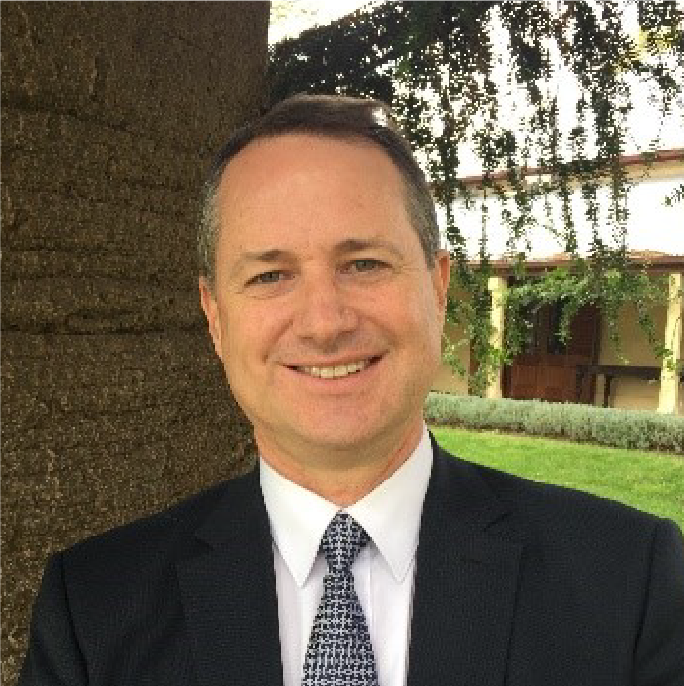
AOGS Axford Medal Award Recipient

2018-2019
Professor Andrew Roberts
Australian National University
The Asia Oceania Geosciences Society (AOGS) is honored to present the 2019 Axford Medal to Professor Andrew P. Roberts, Australian National University (ANU), for “ground-breaking contributions and leadership in rock, paleo-, and environmental magnetism, and for mentorship of emerging researchers in Asia, Oceania, Europe, and the Americas.”
Andrew Roberts enjoyed an Asian childhood. He was born in Japan to parents from New Zealand, and lived for seven years in Taiwan. This background conditioned him to enjoying extensive interaction with Asian collaborators throughout his career. Andrew’s high-school and university education were in New Zealand. He earned his PhD from Victoria University of Wellington, followed by post-doctoral periods at the Centre des Faibles Radioactivités in Gif-sur-Yvette, France, and at the University of California, Davis, USA.
In 1996, Andrew obtained a faculty position at the University of Southampton, UK, where he built an environmental magnetism laboratory that attracted a global pool of talented young researchers, including many from Asia. Andrew trained and mentored them into highly successful academics, many of whom are now leaders in the discipline. Key breakthroughs made during that time include the development of environmental magnetism as a key discipline in paleoclimate and sediment-diagenetic reconstructions, development of first-order reversal curve (FORC) diagrams for characterizing the magnetic properties of natural materials, fundamental rock magnetic studies, including establishing the widespread importance of the mineral greigite in many environmental magnetic records, and development of important high-resolution reconstructions of wind-blown mineral dust inputs into marine sediments. Andrew served as Head of the School of Ocean and Earth Science at the University of Southampton and Associate Director of the National Oceanography Centre, Southampton, from 2005 to 2009.
In 2010, Andrew Roberts moved to Canberra, Australia, to become Director of the Research School of Earth Sciences at the Australian National University (ANU). There, he rebuilt a 50-year old paleomagnetism laboratory, which again attracted a global pool of talented young researchers, this time with an even higher proportion from Asia. Andrew also used this move to intensify collaborations with Asian colleagues, most notably in China, Japan, and Taiwan. For example, since 2010, he has collaborated with co-authors in 28 institutions in China alone. Andrew served a term as Dean of Physical and Mathematical Sciences (serving six Research Schools) at ANU from 2012 to 2017, during which time his research mentorship and leadership continued unabated. Key breakthroughs during his time at ANU to the present include advances in understanding and characterizing fine magnetic particle systems, including demonstrating the global importance of the mineral remains of magnetotactic bacteria in carrying sedimentary magnetic signals, providing critical chronological and environmental contributions to understanding African and Asian monsoon variability, documenting rapid geomagnetic field changes, and understanding sea-level variability through the last 5.3 million years. In 2018-2019, Andrew Roberts was seconded as an Excellent Researcher/Joint Appointed Fellow to the Geological Survey of Japan, National Institute of Advanced Industrial Science and Technology (AIST) in Tsukuba, Japan, where he led a major project pioneering the use of artificial intelligence in rock magnetism.
Professor Roberts is a highly committed leader and researcher with an incredibly broad network of international collaborations. Andrew is entirely dedicated to excellence, and has mentored a large cohort of academics toward highly successful careers. Those fortunate enough to work closely with Andrew for extended periods have been impressed daily by the amount of work he can get through without compromising on quality, especially when undertaking high-level managerial positions alongside a fully committed research pathway. It is this unrelenting commitment that has made Andrew into the international leader in his discipline that he is today.
Andrew’s contributions have been acknowledged with several awards and honors, including: Excellent Researcher, AIST, Japan, 2018-2019; Honorary Fellow, Royal Society of New Zealand, 2013; Fellow, American Geophysical Union, 2013; Japan Society for the Promotion of Science Senior Invited Fellow, 2009-2010; Fellow, Royal Society of Arts (London), 2009; Philip Leverhulme Prize, 2001; U.S. National Science Foundation Antarctic Service Medal, 2000; Royal Society of New Zealand Young Scientists’ Award, 1989.
Given his transformative, continuing research across Asia-Oceania and globally, the 2019 AOGS Axford Medal is a well-deserved distinction.
